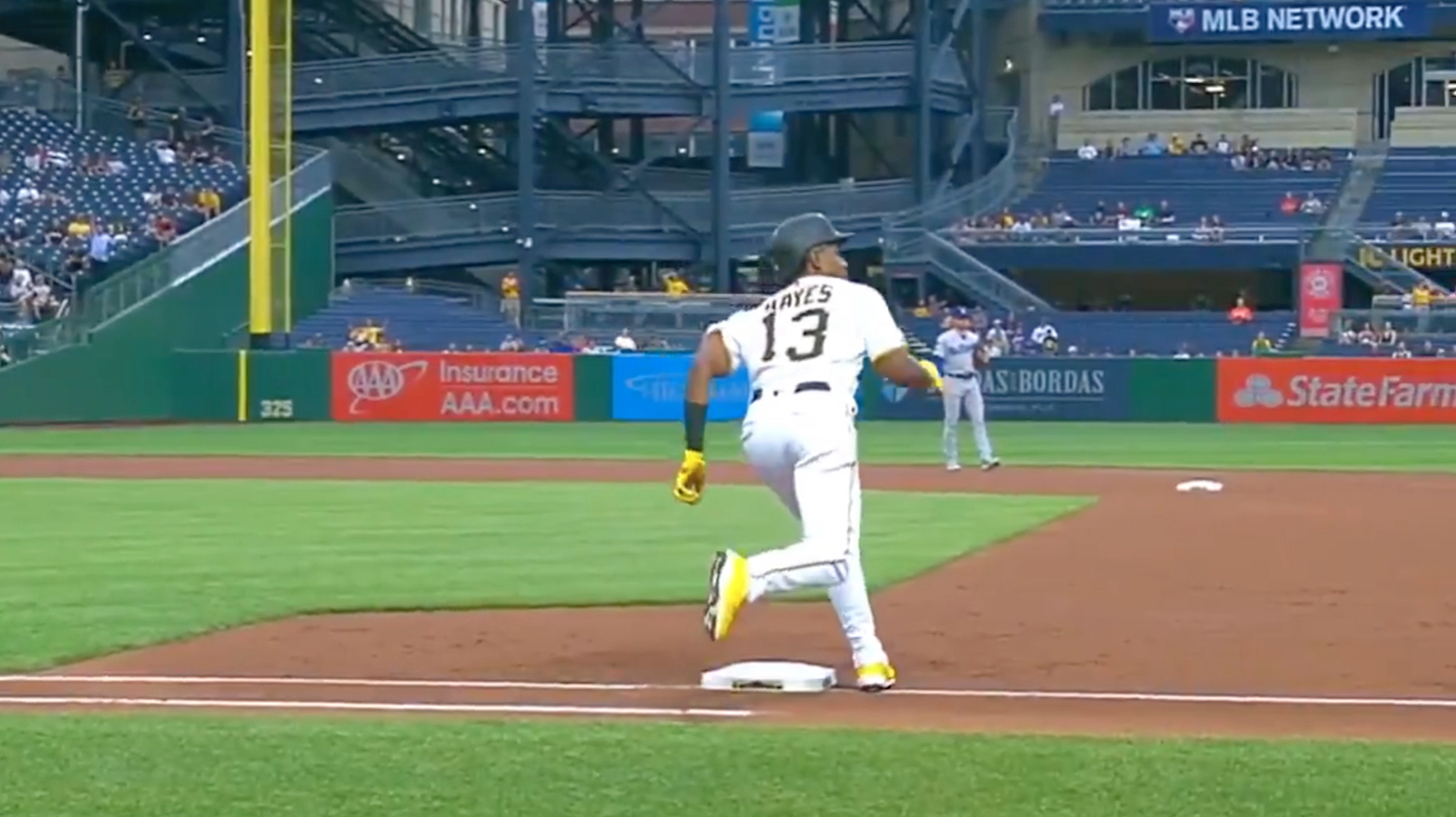Tim Kurkjian is an ESPN lifer who believes that baseball is slowly gutting itself, and he isn't wrong: No sport changes itself more often with less idea why. Toward that end, he has been commissioned to help examine where the game is going, and the answer always seems to be "hell."
Today's investigation is about how baserunning is dying as an art and reinventing itself as toddler slapstick, with loads of examples and quotes from plenty of veteran players and managers. If reading it is too taxing for you, the headline will be sufficient: "Sorry you had to see that.”
And it rings true—Clowntown is 90 square feet large and marked with little gravestones all along the edges where goofy behaviors live free and unpunished. But it's probably not very high on baseball's deficiencies in presenting itself to an audience it barely understands let alone can attract; the spin-rate scandal is somehow more serious than the philosophical change toward baseball in stasis, of which baserunning is only the thin edge of the wedge.
Still, the anecdotes Kurkjian provides are accurate insofar as they go. They just don't go far enough, forward enough. The problem isn't baseball's glorious past but its taste-free future, and the rearview mirror isn't the best place to look for that. The great hole in the deterioration of one more of baseball's old traditions, getting safely from one base to the next, avoids the obvious black hole in the middle, which is the people who are building your new staid, stolid, and flavorless baseball.
If the 30 owners wanted baseball taught more comprehensively, they wouldn't be gutting the minor leagues. If the 30 general managers, who are actually one general manager with 30 heads speaking with one sonorous voice, thought baserunning was an essential part of the game going forward, they would hire people to drum that into the players' allegedly empty skulls. If three-outcomes baseball didn't make sense to them as the only path forward, they'd reconsider some of their closest-held notions, starting with the revelation that there really are things outside pitcher-hitter and walk-strikeout-homer.
But they're not going to. They're pot-committed to this because anything else gets them fired. Theo Epstein has quit his job to try and rethink baseball and the damage done to it by such lockstep theorizing, but so far he's been gripped by the same inertia that has seized Rob Manfred and the industry's beat cops on the spin rate crisis, if crisis is the right word, which it is probably isn't. It's just two portions of the same rancid souffle.
It isn't that baseball resists change; far from it. It's just changed and changed again and is now stuck in a cul de sac whose disgorging driveways have created a cartoon gridlock. It's decided what is old-fashioned and unnecessary and replaced it with stasis. Baserunning can't be a fourth true outcome because there is only room for three, and barring changes in the dimensions of the ball, the strike zone, the infield, the outfield, the positions or the number of teams, that mindset won’t alter. Instead, what baseball has given us this year is not tackling the problem of uniformity, but of uniforms. MLB gave us new hats that went on and off the market in a day, and alternate jerseys that have been met with an overwhelming sense of meh, with a side of feh. It's them missing the point and overcharging you so that they can miss it.
What we have here is a sport whose guardians act as though they are ashamed of the product they purport to nurture and defend, sort of like the sons and daughters of newspaper magnates who look uncool at parties when they're asked by their cooler friends what they do for a living. They applied the notion that the game starts with pitchers and hitters and made that the game's stand-alone proposition out of some misplaced sense of hyper-efficiency.
So asking Andy Van Slyke and Paul Molitor and Dusty Baker and Buck Showalter why baserunning sucks is only the start of Kurkjian's search. It should lead to the people who have squeezed the teachers and tools out of the game because stolen bases suck and going first-to-third is Grandpa's problem and knowing the number of outs is a separate course in the catalog. The players aren't the problem; they know what they're being taught and they know what is being emphasized, and it sure as hell isn't knowing how to break up a double play. Should they? Yes. Could they learn? Absolutely. But that would require a new movement at a decision-making level that values that sort of thing. The people who run baseball and obsessively reward some things and aggressively ignore others get what they want, and since they don't enjoy most of the arty fringes of the game, the innovations they rush into production are held as doctrine.
And then when those innovations only make the game slower and more tedious and homogenized instead of encouraging new schools of thought, you get what you have now—veterans complaining about how things aren’t The Way They Used To Be, and Theo Epstein, in a lab, creating nothing that his successors will recognize let alone implement. Unless in a burst of new rule-making the league office creates two-way basepaths so that otherwise underinformed players can create ways to go from third to first. It won't make the game any more appealing because they'll be trotting in either direction, but it will seem like a new scientific advancement until the next round of stirrups are introduced to sock fetishists. That'll hook 'em.






